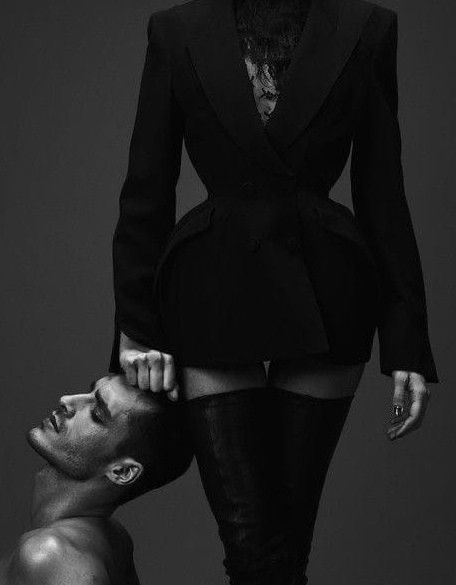“You are not to speak unless spoken to,” she said without looking at him. “Strip.”
Elias raised an eyebrow but obeyed. His shoes, his watch, his tailored coat — all removed with a surgeon’s precision. The uniformed woman handed him a folded black garment. Simple. Cotton. Collarless. The kind of thing you wear when nothing about who you are matters.
Then came the device.
It was presented in a velvet-lined drawer. Sleek. Steel. Precise. Cold.
“You will not remove it,” she said. “Not for hygiene. Not for sleep. Not for pleasure.”
She locked it onto him herself, the click echoing in the sterile corridor like a bullet casing hitting tile. Elias flinched. Not from pain — from the certainty in her hands. She didn’t care who he was.
That was the first moment of fear.
They called her Mistress Seraphine.
The name sounded theatrical, but when she entered the chamber, there was nothing performative about her. She didn’t wear high boots or fishnets. She wore black slacks, a silk blouse, and gloves the color of dried blood. She stood over him — seated now, bare but for the tight chastity cage — and looked at him like a clock she intended to disassemble.
“Mr. Crane,” she said at last. “Do you remember what you signed away?”
“I remember enough.”
She smiled, not kindly. “You remember nothing. You signed away identity, voice, expectation. You are not a man here. You are not Elias. You are not even you. You are subject. And you will refer to yourself as such.”

